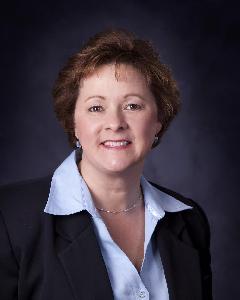14 Having Fun and Broadening Horizons
So Your Child has a Hearing Loss: Next Steps for Parents
Life cannot be all work! Friends, hobbies, travel, art, sports, family outings, part-time jobs, etc. all make life richer and more interesting.
Having Fun and Broadening Horizons
So Your Child has a Hearing Loss: Next Steps for Parents
Life cannot be all work! Friends, hobbies, travel, art, sports, family outings, part-time jobs, etc. all make life richer and more interesting.
When it comes to hobbies and extra-curricular activities, follow your children's interests, and don't impose any limits or restrictions. Heather Whitestone, a former Miss America who is deaf, is an accomplished ballet dancer. Her stunning dance performance during the Miss America pageant helped clinch the title for her. Curtis Pride, also hearing impaired, is a professional baseball player. Evelyn Glennie is considered the world's finest concert drummer, and happens to have a hearing loss. The fact that there is an association of private pilots who are deaf is further proof that a hearing loss is not a barrier to one's passions in life. The Americans With Disabilities Act has helped make most public facilities accessible to people with disabilities while advances in
technology continue to open doors.
While children should not be limited by hearing loss, they may also enjoy joining groups or involving themselves in an activity primarily for children who are deaf or hard of hearing. Being with other children who have a hearing loss can provide a comfortable communication setting surrounded by people who may have a special camaraderie with one another. AG Bell's national mentoring program and leadership conferences for young adults are designed to facilitate exactly these sorts of interactions. Mentoring activities provide children with opportunities to socialize, as well as to meet successful young adults with hearing loss.
Activities with others who are deaf or hard of hearing
- Camps - There are a number of camps across the country which are either exclusively for children with hearing losses, or encourage their participation. Some of these camps are primarily "manual," some are "oral," and some are mixed. AG Bell maintains a list of these camps, as do other organizations.
- Peer groups and socializing - Parents may want to consider establishing a peer support group for their children with hearing loss. To locate other families with children who are hearing impaired, contact your state AG Bell chapter, OPTION-a consortium of private schools for children with hearing loss, or other schools in the area emphasizing the auditory approach. Groups can be structured, meeting regularly, or ad hoc, meeting occasionally. Sessions can be held at your home, or at a museum, park or nearby restaurant. The objective is simply to provide your child with the opportunity to meet new people and have fun in a welcoming environment. Parents also benefit from the support they receive from others who have experienced the same joys and challenges associated with raising a child with hearing loss.
- Youth activities at conferences and conventions run by organizations serving deaf persons. Most large national organizations hold conventions and welcome the attendance of children. AG Bell, for example, develops a customized convention program for children and teen attendees that is a mixture of free play, structured learning opportunities (learning about hearing loss or self-advocacy), organized activities (like face painting or art projects) and field trips-all under the watchful eye of our counselors (who are parents or professionals in the field). Since conventions are usually held at attractive destinations, many families choose to make this their summer vacation.
- School Activities: Public schools are required to provide reasonable accommodation during school activities. This may take the form of having assistive listening devices available during the activity, or even providing an interpreter, for example for a school assembly. Unfortunately the laws do not spell out what is "reasonable" and the services to be provided are negotiated between parents and school administrators. If the accommodation places an excessive financial burden on the school, it may not be deemed reasonable. For example, it might not be reasonable for the Honor Society to provide an interpreter for every meeting, but it would be reasonable to provide an interpreter for an induction banquet, or group attendance at a cultural event. Another criterion for "reasonable" is that the special request be made ahead of time, so that the person in charge of the activity has adequate time to make the appropriate arrangements.
- The Arts: The Americans with Disabilities Act requires reasonable accommodation at theatrical and other cultural events in your community. Again, "reasonable" often applies to cost and difficulty, although certain accommodations such as ALDs must be provided. While a non-profit group sponsoring a free play for children may argue that hiring an interpreter would be overly burdensome, such a request is likely to be a reasonable accommodation for institutions supported by government or for-profit entities. Many theaters have special, interpreted performances or, on request, make scripts available prior to performances.
- The Movies: The ADA does not require movies to be open captioned (i.e., captions running across the bottom of the screen and viewed by the entire audience) but it does encourage the scheduling of special captioned movie showings. These are being offered on an increasingly frequent basis. Many large cities now show captioned versions of first-run movies on a limited schedule. Contact local organizations serving deaf and hard of hearing persons for information about captioned movies in your locale, or log onto www.tripod.org; this site provides a listing of captioned showings nationwide. Additionally, closed captioning technology such as Rear Window, which allows viewers with hearing loss to access captioning that is not visible to the audience at large, has become increasingly important. The benefits of this technology is that it allows people who are deaf or hard of hearing to attend any showing of a film that has been captioned, without having to wait for a special viewing. The prevalence of closed caption technology is expected to grow, and you can expect to see more and more innovation in this area as time goes on.
Additionally, all movie theaters must provide assistive listening devices (ALDs) upon request. These ALDs should be available at all showings and, depending on your child's level of loss, can enhance your child's ability to hear the film's dialogue, songs, etc.
- Sports: Many children with hearing loss find a "level playing field" in sports. With the emphasis on physical, rather than linguistic skills, children who are deaf or hard of hearing can excel in sports activities. The reasonable accommodation rules apply to sports activities but you will likely need to educate the organizers about your child's needs.
- Friends: If your child has difficulty making friends, you can be a catalyst by making your home a warm and welcoming place for kids to hang out. Have computer games, captioned videos, sports equipment and, of course, snacks available, and don't interfere too much!
- Travel: If you travel to large, popular tourist destinations, like Disney World, you should expect reasonable accommodations, such as assistive listening devices and captioning. Even so, it is a good idea to check ahead of time to confirm what they have available. It's best to make your request for special accommodations ahead of time as well. If your child uses a TTY, a hotel should provide one; once again, it's wise to request this equipment when making your reservation, rather than upon arrival. All public accommodations-meaning all facilities that are open to the public-must provide reasonable accommodation, such as TTYs, pay-phone TTYs, amplified phones, interpreted programs, etc.
© 2011 by Alexander Graham Bell Association for the Deaf and Hard of Hearing


